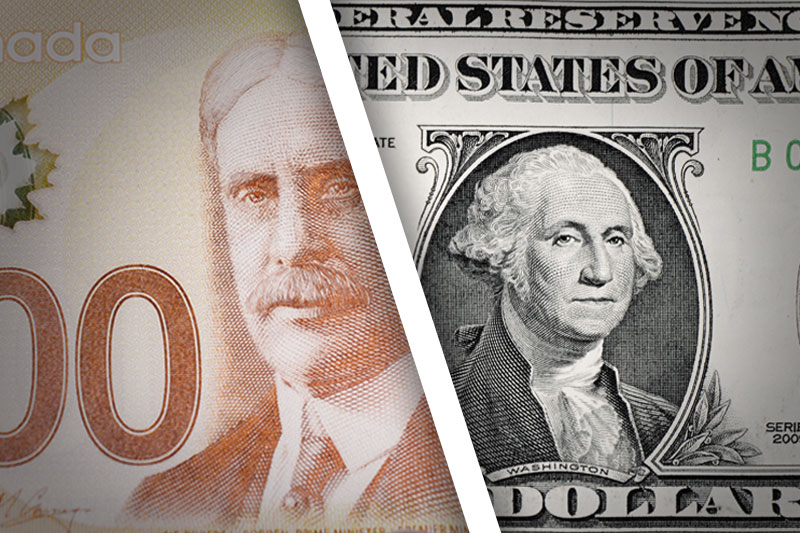Investing.com - The U.S. dollar slipped lower against the Canadian dollar on Tuesday, as demand for the Canadian dollar continued to be underpinned by higher crude prices and expectations for a rate hike by the Bank of Canada.
USD/CAD hit 0.9745 during early U.S. trade, the pair’s lowest since Friday; the pair subsequently consolidated at 0.9764, dipping 0.04%.
The pair was likely to find near-term support at 0.9734, Friday’s low and resistance at 0.9799, Monday’s high.
Investor confidence was hit earlier after the International Monetary Fund cut its forecast for global growth this year to 3.3% from 3.5% and warned that a failure by European and U.S. policymakers to tackle current problems could threaten what it said was an already “slow and bumpy” economic recovery.
Demand for the Canadian dollar was supported by higher oil prices, with crude futures for delivery in November trading at USD90.23 a barrel on the New York Mercantile Exchange, up 1.01%.
Raw materials, including oil account for about half of Canada’s export revenue.
The Canadian dollar also remained supported after official data on Friday showing that Canada’s economy added significantly more jobs than forecast in September added to expectations that the BoC could hike interest rates in the coming months.
Earlier Tuesday, a report produced by the Canada Mortgage and Housing Corporation showed that housing starts fell to a 220,200 annual unit rate in September from a 225,300 annual unit rate in August, beating expectations for a decline to 208,000.
Investors remained cautious amid uncertainty over how soon Spain may formally request a bailout, after euro zone finance ministers said Monday that Madrid did not need external financial aid yet.
The loonie, as the Canadian dollar is also known, was higher against the euro, with EUR/CAD down 0.48% to 1.2607.
Also Tuesday, German Chancellor Angel Merkel said that Greece was on a “tough path” following talks with Prime Minister Antonis Samaras in Athens, but one which she believed would pay off.
The talks came amid ongoing uncertainty over whether international creditors will extend loans to Greece, as the country struggles to meet deficit reduction targets.
USD/CAD hit 0.9745 during early U.S. trade, the pair’s lowest since Friday; the pair subsequently consolidated at 0.9764, dipping 0.04%.
The pair was likely to find near-term support at 0.9734, Friday’s low and resistance at 0.9799, Monday’s high.
Investor confidence was hit earlier after the International Monetary Fund cut its forecast for global growth this year to 3.3% from 3.5% and warned that a failure by European and U.S. policymakers to tackle current problems could threaten what it said was an already “slow and bumpy” economic recovery.
Demand for the Canadian dollar was supported by higher oil prices, with crude futures for delivery in November trading at USD90.23 a barrel on the New York Mercantile Exchange, up 1.01%.
Raw materials, including oil account for about half of Canada’s export revenue.
The Canadian dollar also remained supported after official data on Friday showing that Canada’s economy added significantly more jobs than forecast in September added to expectations that the BoC could hike interest rates in the coming months.
Earlier Tuesday, a report produced by the Canada Mortgage and Housing Corporation showed that housing starts fell to a 220,200 annual unit rate in September from a 225,300 annual unit rate in August, beating expectations for a decline to 208,000.
Investors remained cautious amid uncertainty over how soon Spain may formally request a bailout, after euro zone finance ministers said Monday that Madrid did not need external financial aid yet.
The loonie, as the Canadian dollar is also known, was higher against the euro, with EUR/CAD down 0.48% to 1.2607.
Also Tuesday, German Chancellor Angel Merkel said that Greece was on a “tough path” following talks with Prime Minister Antonis Samaras in Athens, but one which she believed would pay off.
The talks came amid ongoing uncertainty over whether international creditors will extend loans to Greece, as the country struggles to meet deficit reduction targets.
